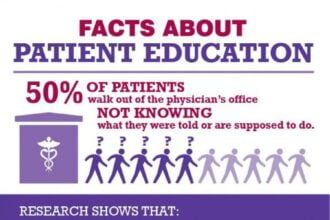The Patient-Centered Outcomes Research Institute has just appointed four new advisory panels that will help guide hundreds of millions of dollars in research grants. Unfortunately, while PCORI released the new advisers’ names, it neglected to tell the public who the advisory panel members really are.
The Patient-Centered Outcomes Research Institute has just appointed four new advisory panels that will help guide hundreds of millions of dollars in research grants. Unfortunately, while PCORI released the new advisers’ names, it neglected to tell the public who the advisory panel members really are.
Let me explain. PCORI says its advisory panels “will be instrumental in helping us refine and prioritize research questions, provide needed scientific and technical expertise [and] offer input on other issues relevant to our mission.” Panel members represent specific stakeholder groups mandated by Congress and are appointed for one year, but they can re-up for another term.
That kind of influence invites attention, and more than 1,000 individuals applied for 82 available spots. Three of the panels correspond to topics that are PCORI national priorities for research: addressing disparities; assessment of prevention, diagnosis and treatment options; and improving healthcare systems. The fourth addresses patient engagement.
So who did PCORI pick? Well, people like Charlotte Collins of Elkridge, MD, representing “patients, caregivers and patient advocates” on the patient engagement panel. That’s the sum total of identifying information given on Ms. Collins and other panel members; there is no educational or professional information at all. I’m a Maryland native, and I’ve never heard of Elkridge, a small community in Howard County whose attractions include proximity to “the world’s largest multiple arched stone railroad bridge with an arc.” But why appoint Ms. Collins as representative of patients and caregivers and not, say, O.P. Ditch, another Elk Ridge resident who is also an active member of the Howard County Tea Party Patriots?
After some diligent Googling, I think I know why Ms. Collins was named. She is an accomplished African-American woman, an attorney, vice president of policy and programs at the Asthma and Allergy Foundation of America and a lecturer at George Washington University. (That’s from her LinkedIn profile.) In contrast, I doubt the Tea Party Patriots include many PCORI supporters among their number.
The point, of course, is that Ms. Collins’ appointment has nothing to do with where her home is located. PCORI’s providing the public with random names (like advisory panel member “Mark Johnson”) attached to residential addresses, as opposed to providing all genuinely relevant information, is somewhere between meaningless and misleading. It certainly does not constitute a genuine disclosure of which people connected with what organizations (or no organization at all) secured which seats on panels that will be influencing who gets a seven-figure PCORI check.
Full disclosure of my own: I applied for the patient engagement panel, in part because of my role as president-elect of the Society for Participatory Medicine, but I wasn’t chosen. However, while my curiosity about who was selected has a personal element, it’s a minor one. When a panel member is listed as representing the pharmaceutical industry, I’d like to know, and the public should know, which company they represent – one with branded drugs or a generic manufacturer? – and what that individual does for a living – scientist or lobbyist? It’s important to know whether a representative of “clinicians” is a doctor active with the American Medical Association or, as appears to be the case for one panel member, a student studying rehabilitation therapy. And, most important, who was chosen to represent “patients”?
The PCORI staff seems to be filled with earnest, do-gooders. (See my post a few months ago on PCORI “goo-goo’s” for more on that theme.) Perhaps they decided that the Jane Smith who is a patient activist should be indistinguishable in her plain-Jane listing from Jane Smith, MD, PhD, medical school professor.
But PCORI isn’t a church, where all are created equal in the eyes of God, but a politically created, politically governed, controversial dispenser of a very large amount of money that a host of interest groups would like to control. PCORI staff chose the panel members in part by looking at their affiliations, and those connections (or lack of them) should be an immediate part of the public record when the appointments are announced. By being vague, PCORI obfuscates political and power relationships and makes it more difficult for the public and industry stakeholders to either approve of or criticize those choices.
So here’s the test: if PCORI’s vagueness stems from do-gooderism or a lack of public relations polish, all the organization has to do is take the information it possesses on panel members and immediately share it. Make the website transparent and useful. It’s that simple, and readers of this blog can click on the PCORI home page to see whether it happens.
I’m sure Elkridge residents Charlotte Collins (here’s a photo of her at a National Allergy Control Initiative meeting) and O.P. Ditch (here’s a picture of him leading the pledge of allegiance at the Howard County Republican Headquarters opening) would both agree.






